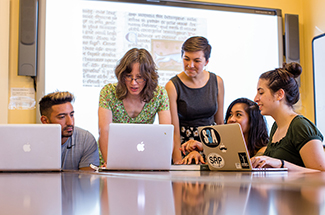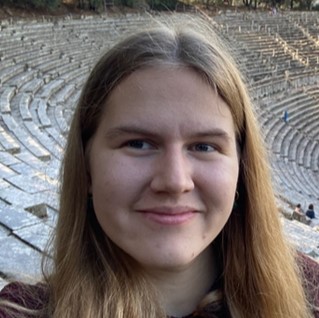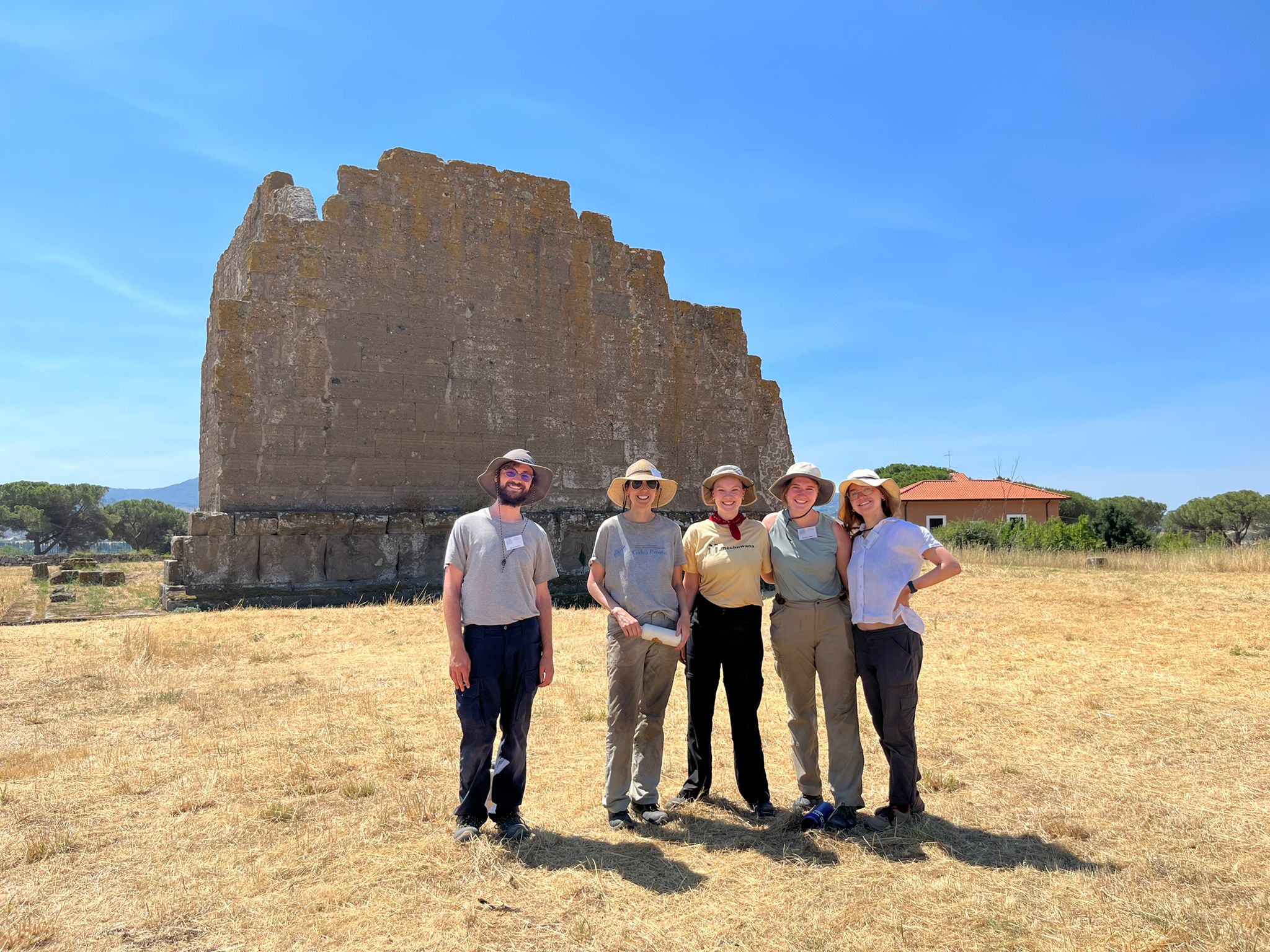
Why Study Classics at K?
Learn about ancient civilizations in small classes and visit historical sites while studying abroad in Rome or Athens.
As a classics student, you will get to experience every facet of Greek and Roman culture and trace their thousand-plus-year reign over the region. You will do this by translating ancient texts, going on archaeological expeditions, and pursuing meaningful research in the field. From these experiences, you will become proficient in either Greek or Latin and have an in-depth knowledge of their empires’ histories in the Mediterranean world.
As a true liberal arts major, your courses—like Women in Classical Antiquity, Greco-Roman Slavery, and Latin Epic—will cover topics across disciplines: archaeology, art, history, religion, philosophy and literature.
Supplementing your coursework, you will benefit from personalized faculty mentorship and experiential learning opportunities like study abroad, fieldwork and the completion of your Senior Integrated Project. To gain a first-hand appreciation for Roman and Greek civilizations, you will have the chance to study abroad in Rome or Athens and visit the landmarks you learned about in your courses. Your professors will also help you find relevant summer internships and archaeological fieldwork opportunities.
The knowledge and skills you will gain as a classics student will prepare you for a host of post-graduate opportunities, with alumni having had successful careers in education, business, law and ministry.
Choosing the Right Major or Minor
The department offers four majors—in Classics, Latin, Greek and Classical Civilization—and three minors—in Latin, Greek and Classical Civilization. Students intending to pursue the study of classical languages at the graduate level are encouraged to major in classics, where you will learn both Greek and Latin; those who are interested in secondary school teaching, divinity school, or graduate work in a cognate area are encouraged to major in either Greek or Latin. Students who discover a passion for classical history or archaeology may be drawn to the major in Classical Civilization, which emphasizes work in translation, culture and history.
What can you do with a classics degree?
Below are some of the careers, employers, and graduate schools of our classics alumni.
Careers
- Teacher
- Attorney/Paralegal
- Communications/Human Resources
- Project Manager
- International Programs Coordinator
Employers
- National Gallery of Art
- PeaceCorps
- Kalamazoo Institute of Arts
- Reed College
- U.S. Department of State
Graduate Schools
- University of Michigan
- Brown University
- University of North Carolina at Chapel Hill
- American University
- Loyola University, Chicago
Program Spotlights
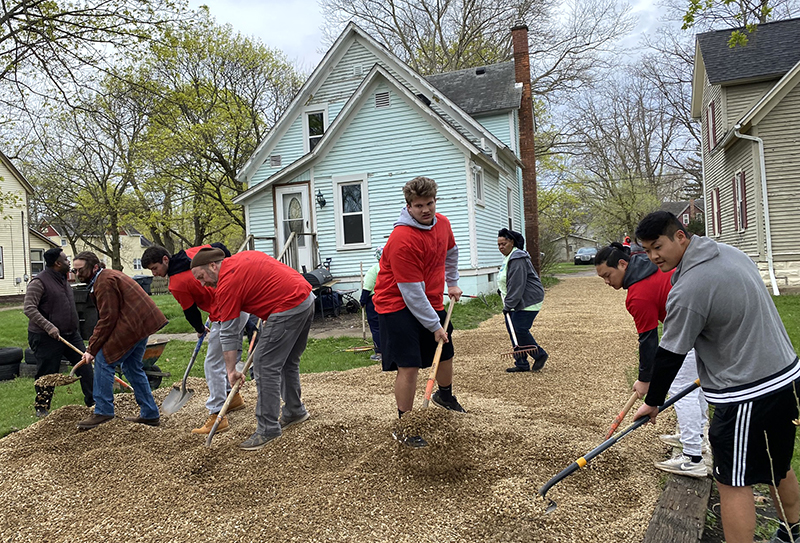
Apply your classics studies in the community
At K, we put your education into action by pairing your studies with real-world projects in the broader community. For example, in our Sustainability in the Ancient World class, you will connect the past with the present by working with the city of Kalamazoo on their Action Plan, researching how to most sustainably improve our community. Outside of your coursework, the department helps you find opportunities to gain hands-on experience through internships at museums and funded summer archeological digs and research abroad.
Study abroad in Italy or Greece
While you can choose from any of the College’s 50+ study abroad opportunities and transfer relevant credits, classics students have a unique opportunity to further their studies in our two programs in Rome, Italy, and one in Athens, Greece. In each of these programs, you will use your city as your classroom, taking courses and learning about these civilizations’ rich histories, languages, cultures and peoples on location at historical sites.
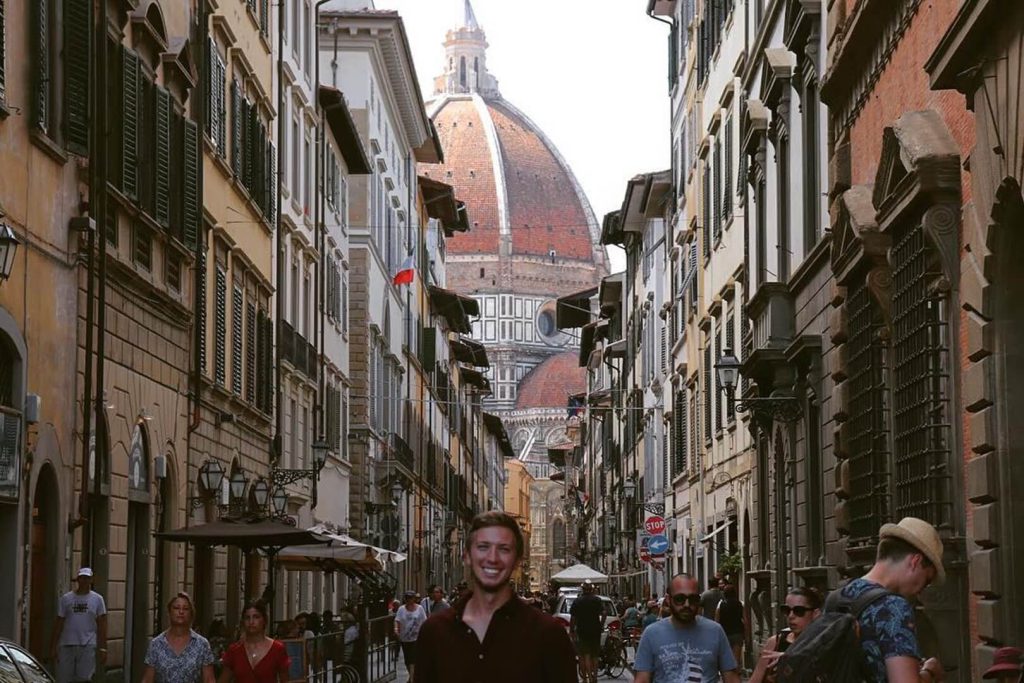
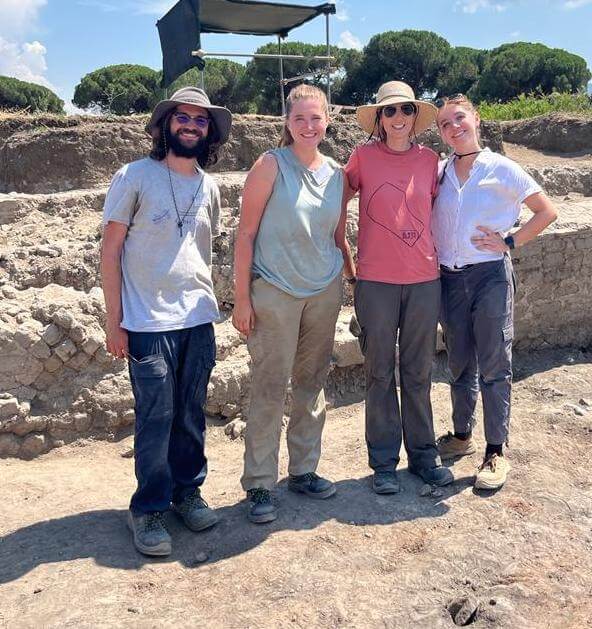
Graduate knowing you have the skills to thrive
All K students gain tangible skills for their future careers by completing their Senior Integrated Project (SIP). Many of our students have used this as an opportunity to expand upon previous internships, archeological digs, or courses with in-depth research and analysis. For example, Brenden French ‘20 spent two summers excavating an ancient Roman villa for his SIP on the Antonine Amphitheater; and Annabelle Houghton ‘20 conducted modern and archival research on oracles in Greek, Roman, and Egyptian mythology in her SIP, “A Hist-Oracle Connection Between the Sanctuaries of Zeus Naios and Zeus Ammon?”
Meet the Current Departmental Student Advisor
What is the best thing about being part of this department?
I enjoy our smaller class sizes, which let me get to know the entire department very well. After taking classes with a lot of the same people, it makes for a welcoming and collaborative learning environment.
What drew you to the department?
I’ve always been interested in ancient history, and although I hadn’t studied Ancient Greece or Rome before, the classics department became an outlet for me to study ancient history in an area that I hadn’t considered before!
How have you taken advantage of the flexible curriculum or experienced breadth in your education?
The open curriculum has allowed me to pursue a variety of my interests. Besides classics, I have also been able to be very involved in the theater department. Theater has always been a hobby of mine, and although I wanted to go in a different direction academically, it is still super easy for me to engage in theater at K! I have taken all of the theater design classes, work in the scene shop, and have participated in some capacity on most of the productions put on over the past three years.
What is your favorite thing about K?
I like the small class sizes (I’ve had classes of only four people before!) because they allow for a deeper connection with my classmates and professors
What is your Senior Integrated Project [SIP]?
I don’t have a solidified idea yet, but I will be writing a research SIP, specifically looking at cemeteries and grave epitaphs across time. I’ll potentially look at the local cemeteries here in Kalamazoo and compare them to ancient cemeteries.
What are your career aspirations/next steps after K?
I don’t know yet! But I loved my experience studying abroad, and hope that whatever I do post-grad will take me overseas again!

